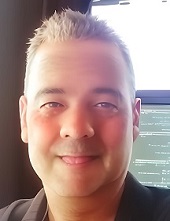In the vast and intricate tapestry of human existence, the quest for purpose stands out as one of the most enduring and significant threads. From the dawn of civilization, humans have been caught up in the search for meaning, a reason that transcends mere survival. This quest is more than a philosophical pastime; it’s an intrinsic need that impacts our mental health, emotional well-being, and the course our lives take.
The Psychological Need for Purpose
Psychology teaches us that purpose isn’t just a philosophical question but a fundamental psychological need. Viktor Frankl, a Holocaust survivor and the founder of logotherapy, argued that the primary human motivation is the pursuit of meaning. According to Frankl, finding purpose in life can be a powerful tool to overcome even the most adverse circumstances. Modern studies in positive psychology back this up, showing that individuals with a strong sense of purpose experience higher levels of life satisfaction, resilience against stress, and, in some cases, even live longer.
The lack of purpose, on the other hand, can lead to what Frankl termed “existential vacuum,” a feeling of emptiness and disorientation that can arise when one does not find meaning in their life.
Sources of Purpose
Where can we find this purpose? The answers are as varied as cultures and individuals themselves:
- Social Connections: Many find purpose in relationships: family, friends, community. Being part of something larger than oneself, whether through raising a family, supporting friends, or contributing to a community’s well-being, can provide a deep sense of belonging and purpose.
- Work and Creativity: For others, work isn’t just a means to an end but a source of personal fulfillment. Whether through artistic creation, scientific innovation, or service through professions like medicine or teaching, work can be a profound source of purpose.
- Beliefs and Spirituality: Religion and spirituality have been traditional sources of purpose, offering answers to questions about origin, the meaning of life, and what comes after death. Even for those not following an organized religion, personal spirituality can provide a framework for understanding purpose.
- Learning and Personal Growth: The path of knowledge and self-discovery is also a route to purpose. Learning, growing, and improving oneself can be an end in itself, providing a sense of progress and direction.
- Causes and Activism: Engaging in larger causes, whether environmentalism, social justice, or any form of activism, can give life a sense of urgency and significance.
The Process of Finding Purpose
Finding purpose isn’t a one-time event but a process that often involves:
- Self-Reflection: Taking time to think about what truly matters, what makes us feel alive, and where we want to invest our time and energy.
- Experimentation: Sometimes, it takes trying different paths to find what resonates with us. This might mean changing careers, exploring new interests, or getting involved with different communities.
- Resilience: The search for purpose can be frustrating and full of ups and downs. The ability to persevere through failures and doubts is crucial.
- Flexibility: Our sense of purpose can evolve with life’s stages. What motivates us in our twenties might differ from our fifties. Being open and flexible to redefine purpose is part of the journey.
Impact on Society
At a societal level, the search for purpose not only shapes individual lives but also influences the direction of culture and human development. The great works of art, scientific breakthroughs, social movements, and political reforms often have their roots in individuals or groups driven by a deep sense of purpose.
However, there’s a dark side to consider. When purpose becomes dogmatic or exclusionary, it can lead to conflict, fundamentalism, and the denial of other paths or viewpoints. History has shown that purpose, when misguided or misdirected, can be destructive.
The search for purpose is, at its core, the search for what makes life worth living. It’s a personal journey, but one with implications that touch every sphere of human experience. In a constantly changing world, where traditional certainties are questioned, the need to find and redefine our purpose becomes even more urgent. Those who achieve this balance between personal purpose and contribution to the collective not only find personal satisfaction but also contribute to a legacy of meaning, hope, and progress for humanity.
Please, join my newsletter to keep you updated.
